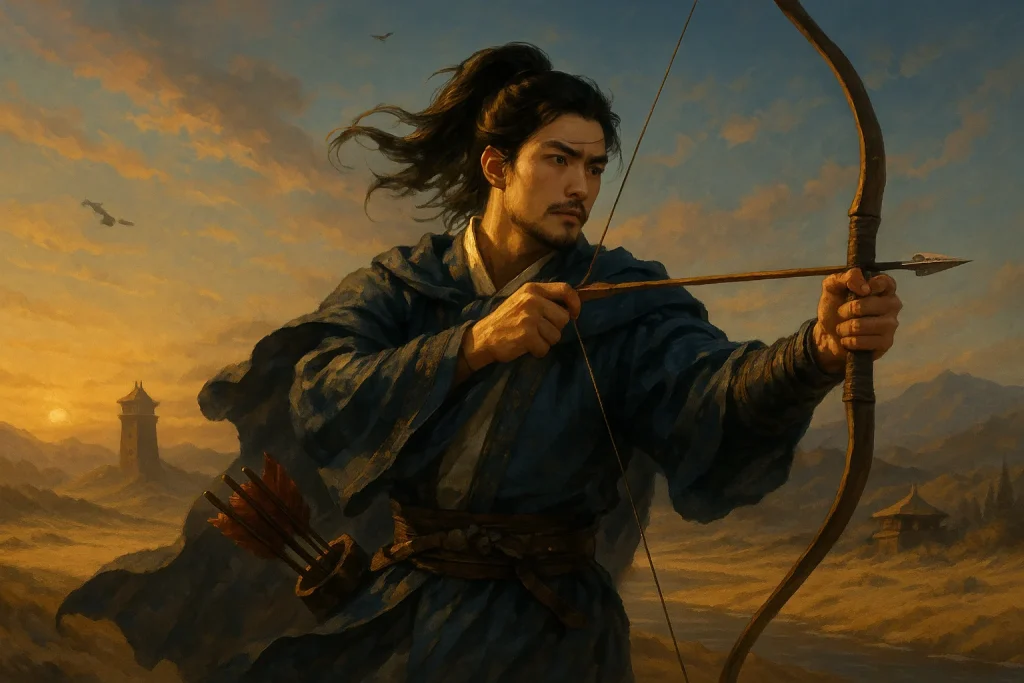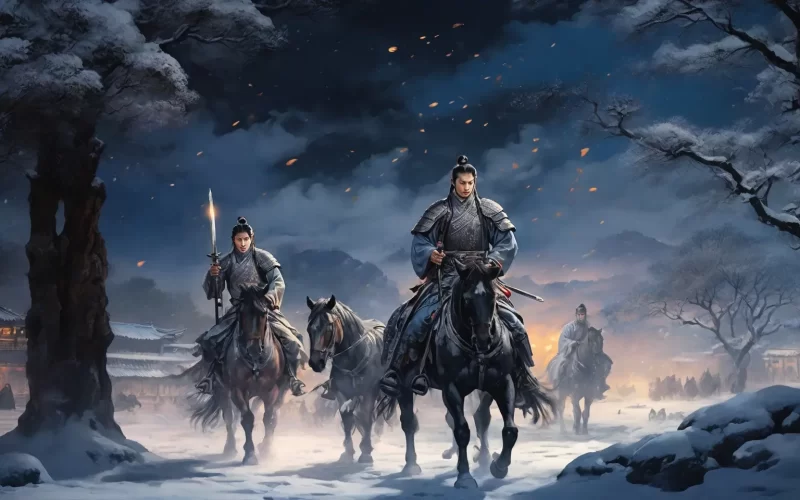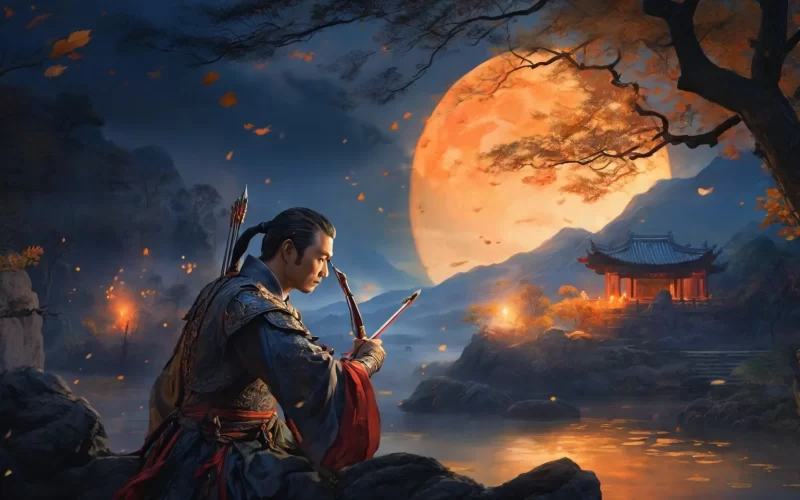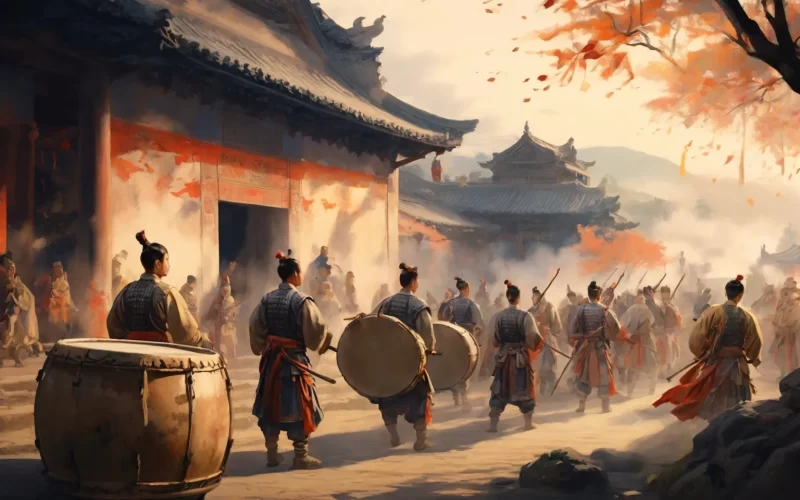High in the faint moonlight, wildgeese are soaring.
Tartar chieftains are fleeing through the dark -
And we chase them, with horses lightly burdened
And a burden of snow on our bows and our swords.
Original Poem
「塞下曲 · 其三」
卢纶
月黑雁飞高,单于夜遁逃。
欲将轻骑逐,大雪满弓刀。
Interpretation
This third poem in the series, composed during mid-Tang Dynasty, preserves the heroic spirit of High Tang frontier poetry despite its later era. It captures a tense snowbound night pursuit, sculpting warriors' fearless valor in sparse yet potent strokes, radiating unyielding heroism.
First Couplet: "月黑雁飞高,单于夜遁逃。"
Yuè hēi yàn fēi gāo, chányú yè dùn táo.
Moonless night - geese soar high; the Khan flees under darkness.
The inverted structure first shows startled geese - nature's alarm - then reveals the enemy's escape. The pitch-black night, shattered only by panicked fowl, creates ominous tension. "Geese" signify both season and military alert, compressing pre-battle suspense into ten characters.
Second Couplet: "欲将轻骑逐,大雪满弓刀。"
Yù jiāng qīng qí zhú, dà xuě mǎn gōng dāo.
Light cavalry poised to chase - blizzard sheathes bows and blades.
A cinematic moment: snow-laden weapons glint as troops prepare. "Poised" suggests imminent action, while "sheathes" paradoxically shows nature arming what warriors wield. The blinding storm becomes both obstacle and testament to their resolve, mirroring the opening's darkness with equal intensity.
Holistic Appreciation
Four lines construct an entire frontier drama - not the battle's climax but its pregnant moment. The poet freezes time between enemy retreat and pursuit, using elemental imagery (snow, darkness, steel) to manifest the soldiers' alert readiness. This snapshot of drawn tension, where nature and warfare intertwine, achieves both visceral impact and enduring symbolic power.
Artistic Merits
- Atmospheric tension: "Moonless"/"blizzard" creates chiaroscuro drama
- Iconic frontier imagery: Startled geese, light cavalry, snowbound weapons
- Cinematic compression: Two pivotal actions (escape/preparation) imply entire campaigns
- Precision crafting: Five-character lines distill complex scenarios into crystalline verses
Insights
Beyond celebrating frontier bravery, the poem codifies an eternal attitude: true courage means readiness amidst adversity. These warriors, their weapons literally burdened by nature's assault, embody determination that transcends military contexts. The image of snow-clad blades becomes universal - a reminder that obstacles often adorn the tools of perseverance, and that true preparedness means standing resolved when conditions are most forbidding.
Poem translator
Kiang Kanghu
About the poet

Lu Lun (卢纶), 748 - 798 A.D., was a native of Yongji, Shanxi Province, and was one of the "Ten Scholarly Men of the Dali Dynasty". Lu Lun was a judge of the Marshal's Office in Hezhong, and he served as the inspector of the Ministry of Revenue. His poems were more eloquent and liberal, with many works of farewells and rewards, as well as works reflecting the life of soldiers. Five volumes of his poems are recorded in Quan Tang Shi (All Tang Poems).












